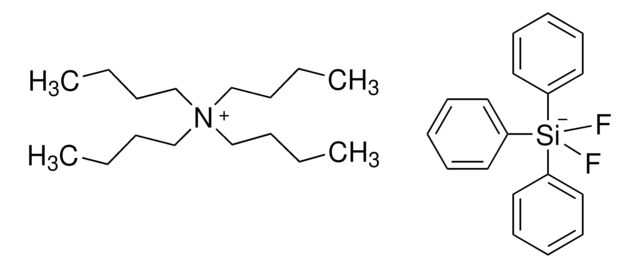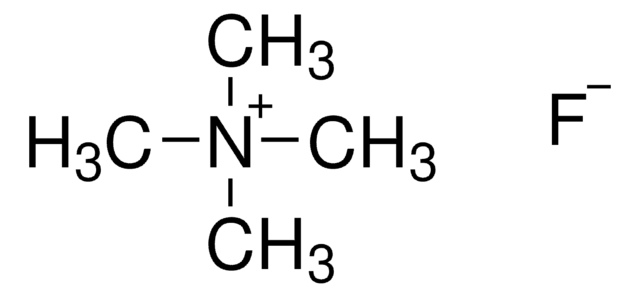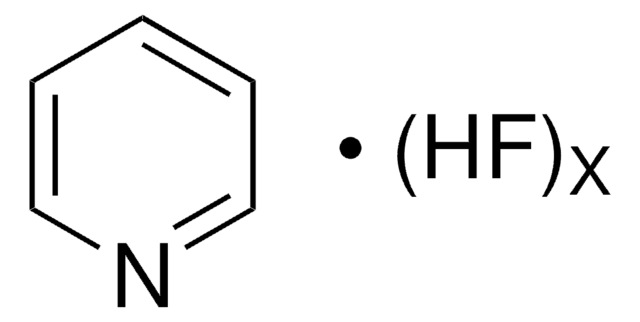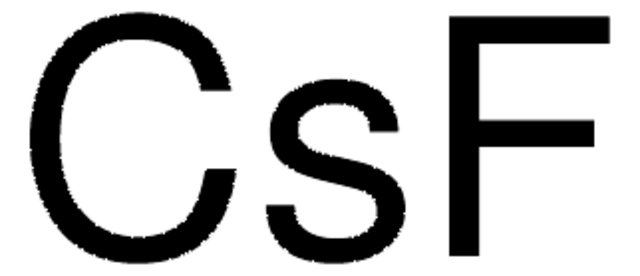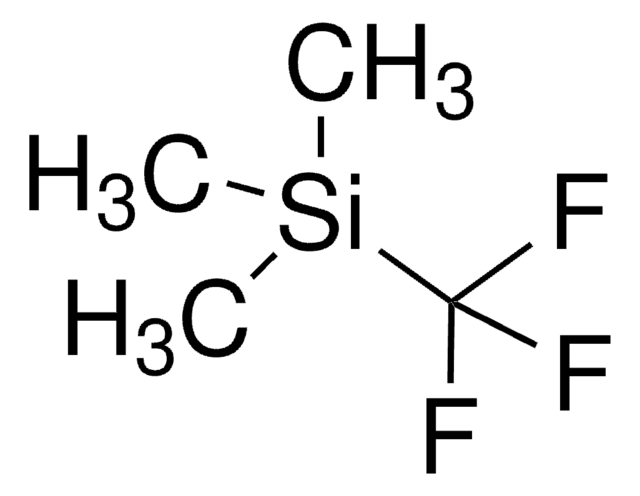250600
Tris(dimethylamino)sulfonium difluorotrimethylsilicate
technical grade
Synonym(s):
TAS-F, TASF, Tris(dimethylamino)sulfur trimethylsilyl difluoride
Sign Into View Organizational & Contract Pricing
All Photos(1)
About This Item
Linear Formula:
[(CH3)2N]3S[(CH3)3SiF2]
CAS Number:
Molecular Weight:
275.48
Beilstein:
3577020
MDL number:
UNSPSC Code:
12352101
PubChem Substance ID:
NACRES:
NA.22
Recommended Products
grade
technical grade
Quality Level
reaction suitability
reagent type: reductant
storage temp.
2-8°C
SMILES string
C[Si-](C)(C)(F)F.CN(C)[S+](N(C)C)N(C)C
InChI
1S/C6H18N3S.C3H9F2Si/c1-7(2)10(8(3)4)9(5)6;1-6(2,3,4)5/h1-6H3;1-3H3/q+1;-1
InChI key
JMGVTLYEFSBAGJ-UHFFFAOYSA-N
Looking for similar products? Visit Product Comparison Guide
General description
Tris(dimethylamino)sulfonium difluorotrimethylsilicate is widely used in organic synthesis as a source of fluoride ion for the synthesis of fluorinated compounds by C-F bond formation. It is also used as a reagent in hydrosilylation, cyanomethylation of ketones and Pd-catalyzed cross-coupling reactions.
Application
Tris(dimethylamino)sulfonium difluorotrimethylsilicate (TASF2SiMe3) can be used as a mild deprotecting reagent for the cleavage of silicon protecting groups.
It can also be used
It can also be used
- To synthesize deoxyfluoro sugars by reacting with trifluoromethanesulfonyl derivatives of partially protected sugars.
- As a reagent for the fluorination of hydroxyl-containing compounds.
Other Notes
Remainder tris(dimethylamino)sulfonium bifluoride
Signal Word
Danger
Hazard Statements
Precautionary Statements
Hazard Classifications
Skin Corr. 1B
Supplementary Hazards
Storage Class Code
8A - Combustible corrosive hazardous materials
WGK
WGK 3
Flash Point(F)
Not applicable
Flash Point(C)
Not applicable
Personal Protective Equipment
dust mask type N95 (US), Eyeshields, Gloves
Choose from one of the most recent versions:
Already Own This Product?
Find documentation for the products that you have recently purchased in the Document Library.
Journal of the Chemical Society. Chemical Communications, 663-663 (1985)
Stephen R Groskreutz et al.
Journal of chromatography. A, 1523, 193-203 (2017-07-20)
On-column solute focusing is a simple and powerful method to decrease the influence of precolumn band spreading and increase the allowable volume injected increasing sensitivity. It relies on creating conditions so that the retention factor, k', is transiently increased during
Our team of scientists has experience in all areas of research including Life Science, Material Science, Chemical Synthesis, Chromatography, Analytical and many others.
Contact Technical Service